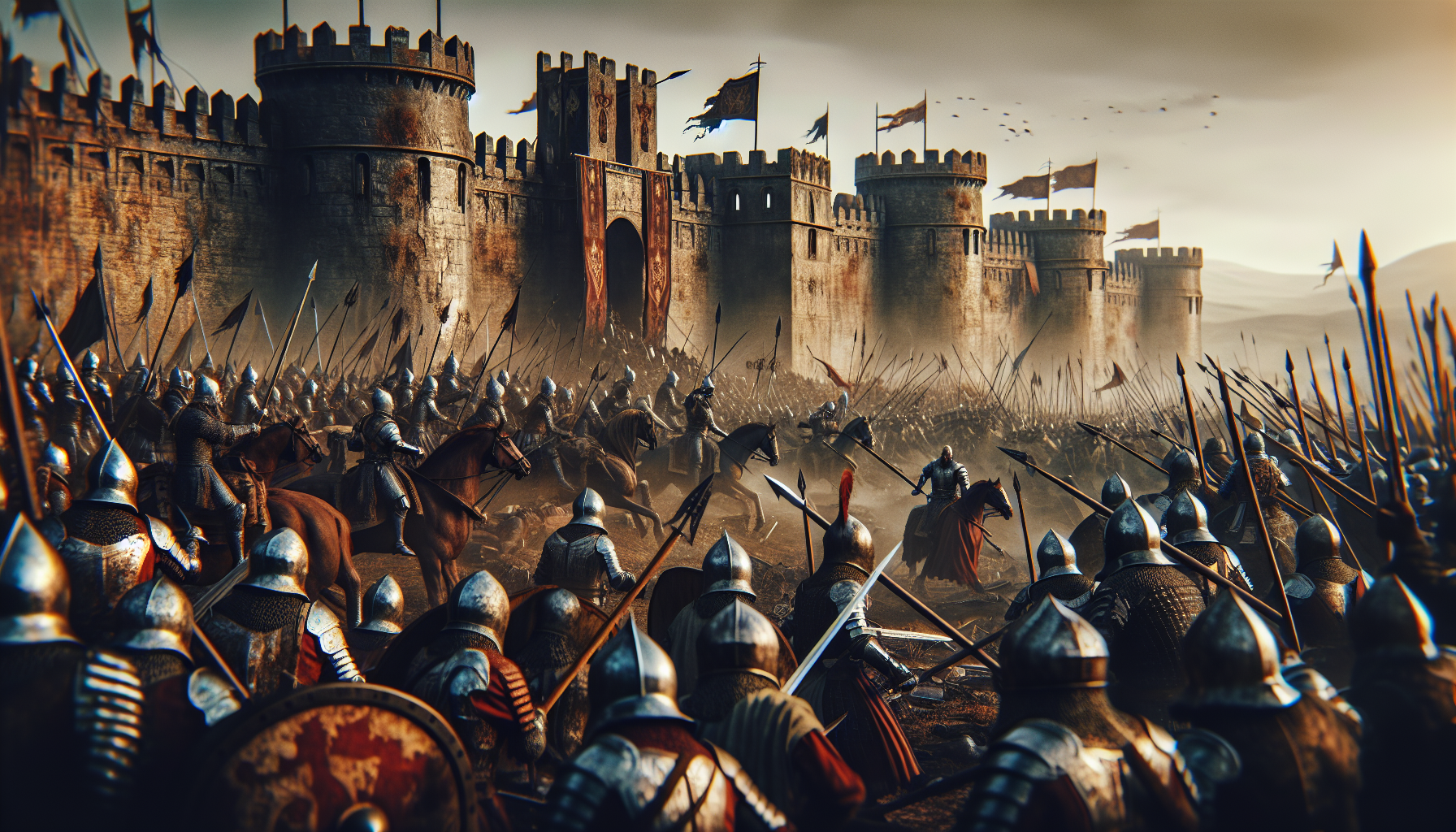War has been a fundamental part of human civilization since the dawn of time. It is neither an anomaly nor an occasional disturbance—it is a permanent feature of human existence. While societies may dream of peace, history reveals that war is an inherent outcome of competing interests, power struggles, and the natural instincts of survival.
No civilization has ever escaped the cycle of war. It has shaped empires, destroyed dynasties, and redefined the course of nations. Understanding war is not about glorifying it but about recognizing its role in shaping history and the future.
Why War Is Inevitable
1. The Struggle for Resources
From ancient tribal battles to modern geopolitical conflicts, war often arises from the struggle for essential resources—land, water, oil, or food. As populations grow and resources become scarce, the competition intensifies.
- The conquest of fertile lands has fueled wars since the earliest human settlements.
- Nations have fought over access to trade routes, minerals, and energy supplies.
- In the modern world, economic dominance often dictates military aggression.
“When survival is at stake, morality becomes a luxury. War is often a disguised form of nature’s law of selection.”
2. Power, Ambition, and the Instinct to Dominate
Power is a driving force in history, and war is its most brutal expression. Leaders and nations seek power not just for security but for expansion, prestige, and influence.
- The desire for political dominance has led to countless wars.
- Empires expand through conquest and eventually decline due to internal decay or external invasion.
- Rulers who do not display military strength are often overthrown by those who do.
“History belongs to those who seize it with force. The weak may dream of peace, but the strong dictate its terms.”
3. The Illusion of Permanent Peace
History repeatedly proves that peace is temporary. Treaties and diplomatic efforts may delay war, but they rarely prevent it. Sooner or later, tensions resurface, and conflicts reignite.
- The balance of power always shifts, leading to new struggles.
- Economic crises, ideological clashes, and nationalism often trigger wars despite peace agreements.
- Even in peaceful periods, nations prepare for war, knowing that power is the only true deterrent.
“Peace is the pause between two wars—a fragile illusion that lasts only until the next conflict begins.”
How War Shapes Civilization
1. War as a Catalyst for Technological and Economic Growth
Ironically, war has often accelerated human progress. Many of the greatest technological and industrial advancements have emerged from wartime necessity.
- The need for better weapons has driven innovations in metallurgy, chemistry, and engineering.
- Wars have led to the construction of roads, ports, and logistical networks that later benefit economies.
- Military research has led to peacetime inventions, from the internet to medical advancements.
“Conflict fuels innovation, for necessity is the mother of both invention and destruction.”
2. The Rise and Fall of Empires
History is a constant cycle of rise, expansion, stagnation, and collapse. Every empire that reached greatness did so through conquest, and nearly all met their end through war.
- The Persian Empire, Roman Empire, Mongol Empire, British Empire—each expanded through war and eventually fell due to military overstretch or internal weakness.
- The greatest civilizations of history have been forged in battlefields, not in peace conferences.
- The strongest military powers write history, while the weak are erased from it.
“War is the final exam of civilizations—those who fail it vanish from history’s pages.”
3. War as a Tool of Social Change
While war brings destruction, it also reshapes societies in profound ways. Revolutions, civil wars, and global conflicts have often led to:
- The collapse of outdated political systems.
- The birth of new ideologies and social movements.
- The redistribution of wealth and power.
For instance, World War II dismantled colonial empires and led to the emergence of new global superpowers. The American Civil War abolished slavery. The French Revolution changed the course of European governance.
“Bloodshed, though tragic, often waters the roots of change.”
Lessons for Today and the Future
1. Understanding Power Is Essential for Survival
Individuals, companies, and nations must recognize that power dynamics are at play in every aspect of life. A naïve belief in perpetual peace leads to vulnerability.
- Nations that fail to maintain military strength invite aggression.
- Businesses that do not adapt to competitive pressures fade away.
- Individuals who ignore the nature of power find themselves at the mercy of those who understand it.
“In a world driven by power, those who refuse to compete are destined to be ruled by those who do.”
2. War Will Continue in Different Forms
While large-scale world wars may seem less frequent, war has not disappeared—it has evolved. Modern warfare includes:
- Economic warfare (sanctions, trade wars, financial manipulations).
- Cyber warfare (hacking, information manipulation, digital espionage).
- Political and ideological warfare (propaganda, influence operations, covert destabilization).
Future conflicts may not always be fought with armies on battlefields, but the principles of power and survival remain unchanged.
3. The Only Real Deterrent to War Is Strength
History shows that the best way to prevent war is not idealism but deterrence. Strong nations are rarely attacked; weak ones always are.
- Military strength, economic resilience, and strategic alliances ensure national security.
- A weak nation dependent on others for survival is inviting conquest.
- The balance of power must be maintained to avoid domination by aggressive forces.
“Weakness is an invitation to war. Strength is the only true guardian of peace.”
Final Thoughts
War is not a mistake of history—it is its most consistent feature. Every generation hopes to end war, yet every generation sees its return. The lessons of history teach us that understanding war is crucial for survival, power, and progress. Those who ignore these lessons do so at their own peril.
In a world where conflict is inevitable, the wisest course of action is not to hope for peace but to prepare for the next battle—whichever form it may take.
“Civilizations rise on power and fall in its absence. Those who do not prepare for war are preparing for defeat.”



